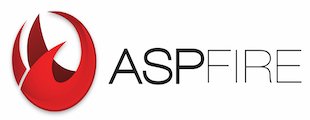ASP Fire provides holistic, proactive, and preventative fire solutions based on integrated fire risk assessment, training, and consulting, along with the installation and maintenance of fire detection and suppression systems that meet SABS, NFPA, FPASA and SAQCC standards,” explains CEO Michael van Niekerk.
Established in 2013, ASP Fire provides fire engineering and HVAC consulting and turnkey fire engineering services across Africa. It adds value to its clients by focusing on the prevention, detection, and suppression of fires in key areas by:
Conducting on-site client fire risk assessments and fire investigations.
Drafting deemed to satisfy fire protection plans and performance based rational designs.
Designing mechanical HVAC and wet services for buildings.
Ensuring cost-effective designs by eliminating high-cost elements at the design phase where possible.
ASP Fire is able to design automatic sprinkler suppression systems, water mist suppression systems, fixed spray automatic deluge suppression systems, gaseous suppression systems, fire detection systems, smoke control ventilation systems, stairwell pressurisation systems and compartmentalisation systems.
“We operate across the entire continent from our Gauteng base, providing professional, accredited fire risk management and support to our clients. We design, install, and maintain a full range of fire detection and suppression equipment suited to your needs,” explains van Niekerk.
The ASP Fire team have been directly involved in a number of diverse fire engineering projects, either as lead engineer or as a part of a professional team. Its client base centred in South Africa covers continental Africa and includes companies from Blue Chip listed multinationals to owner-managed micro enterprises.
ASP Fire has several well-developed operational nodes within Southern Africa that have evolved around strong client relationships. Locally, it focuses on Johannesburg, Pretoria, Meyerton, and Vereeniging in Gauteng, Secunda, Nelspruit, and White River in Mpumalanga, Brits, and Rustenburg in the North West Province, and Tete and Maputo in Mozambique.
ASP Fire has a development programme for young, black Africans registered with the Manufacturing Seta, MERSETA, through which talent is fostered by means of bursaries, skills development, training, coaching, and mentoring. ASP Fire is funding the studies of a female African engineering student at Wits University through the ASP Fire bursary programme.
“To conduct a fire risk assessment or rational design, a fire risk consultant visits your premises to undertake a comprehensive evaluation of all areas of your property, looking at all factors in terms of fire safety and risk in detail. Sound fire engineering principles are applied to ensure that the design complies with the life, property and environmental fire safety objectives required by law,” says van Niekerk.
Upon completion of the fire risk assessment and drafting of a rational design report, ASP Fire recommends practical actions to be followed to ensure compliance. The report comprises a detailed and documented fire risk assessment, as well as fire engineering calculations where required, covering all aspects of fire risk and safety.
This guides you to protect your business, employees, and customers by providing prioritised recommendations for your action to rectify problem areas and strengthen existing fire safety procedures. It ensures you comply with fire safety regulations for the protection of life, property, and the environment.
“We also work with you and your insurance broker or underwriter to address your fire risk based on the outcomes of the fire safety risk assessment report. It assists in preventing damage to property and products, loss of life, financial loss, consequential loss of profit, loss of productivity and insurance repercussions,” concludes van Niekerk.



